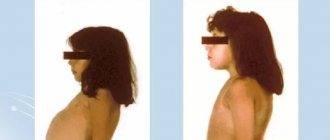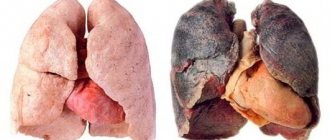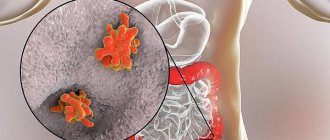What is hypothyroidism?
The content of the article
The thyroid gland is the organ responsible for producing hormones that control metabolism, such as triiodothyronine (T3), thyroxine (T4) and calcitonin. To produce them, the thyroid gland needs iodine from food and air. The functioning of the thyroid gland is controlled by the hormone TSH, which is produced by the pituitary gland.
Hypothyroidism is a group of symptoms caused by a lack of hormones produced by the thyroid gland. Women are more likely to be affected—hypothyroidism is estimated to affect 5% of women and 1% of men. 1-6% of patients are under 60 years of age, and its incidence increases with age.
Prevalence of hypothyroidism
Hypothyroidism is a very common disease. Scientific evidence suggests that the prevalence of hypothyroidism is higher in northern regions than in southern regions. The average incidence of hypothyroidism is 19 per 1000 women. Among men, hypothyroidism is rare - in 1 case per 1000. With age, hypothyroidism begins to occur even more often - in some regions, hypothyroidism can be detected in 2-3% of women aged 50 years and older.
The number of patients with hypothyroidism is so large that sometimes up to 50% of patients present with hypothyroidism-related complaints when visiting an endocrinologist.
Symptoms of hypothyroidism
Most often, hypothyroidism is associated with weight gain, but the list of typical ailments is much longer. Clinical symptoms of thyroid hormone deficiency can be more or less severe, but thyroid hormones affect the function of almost all tissues and organs of the human body.
The symptoms of hypothyroidism are so varied that they are often associated with other diseases, such as dermatological, gastrological, cardiac or hematological. This is why a deficiency of thyroid hormones, called hypothyroidism, can cause a number of seemingly unrelated symptoms.
The doctor is most often contacted with the following complaints:
- constant fatigue;
- drowsiness that does not go away despite drinking large amounts of coffee or energy drinks;
- problems with concentration and memory;
- muscle weakness;
- chronic constipation;
- mood swings - depression, apathy and tendency to depression;
- feeling cold - even in warm clothes or in heated rooms;
- eye pain, redness and burning - symptoms often reminiscent of conjunctivitis;
- decreased immunity - the result of frequent infections;
- problems with pregnancy.
Low hormone levels can also affect your appearance, causing: hair loss, pale and dry skin, puffiness.
If you notice that your neck circumference has increased for unknown reasons, contact your endocrinologist and ask for a referral for a thyroid examination.
People with mild hypothyroidism may not notice any symptoms at first, but if the problem is not detected and treated promptly, the disease can develop quite quickly.
Symptoms of hypothyroidism
It can be difficult to identify hypothyroidism based on patient complaints. Patients with hypothyroidism complain of weakness, drowsiness, fatigue, memory loss, and depressed mood. Many people are concerned about dry skin, brittle nails, active hair loss, swelling of the face and limbs, moderate weight gain due to developing edema, and the appearance of chilliness. In severe cases, lethargy, slow speech, a characteristic hoarse voice, swelling of the tongue, slow pulse, and constipation may appear. With hypothyroidism, women may develop infertility. Men with hypothyroidism may be concerned about decreased potency.
The quick identification of hypothyroidism is hampered by the fact that such complaints often occur in completely healthy people. Indeed, who among us does not sometimes complain of weakness and drowsiness, decreased performance? In spring and winter, this condition is almost the norm for many. It is important for an endocrinologist to have enough knowledge and experience to distinguish between the symptoms of hypothyroidism and the complaints of completely healthy people who are tired of intense work and a difficult life schedule.
Tests to check your thyroid gland
Even if you feel great, have your thyroid checked at least once every 2-3 years (and every year after age 50). This is mandatory if you are planning to become pregnant or are already pregnant, and if you have any of the above symptoms.
Basic diagnosis involves checking the blood for levels of a hormone produced by the pituitary gland, i.e. TSH levels. If there is too much of it, it is a sign that the body is trying to stimulate the thyroid gland more intensely. And this happens precisely because the thyroid gland does not produce enough of its own hormones.
Diagnosis of hypothyroidism
Hypothyroidism of the thyroid gland is diagnosed by the clinical symptoms of its manifestation, as well as the patient’s tests. Namely, first of all, they check the levels of T3 and T4 in the blood, which increase in the presence of the disease. In some cases, an increase in the level of these hormones indicates a high sensitivity of tissues to them. It is observed that with primary hyperthyroidism the level of thyroid-stimulating hormone decreases, and with secondary hyperthyroidism, on the contrary, it increases.
Tests with radioactive iodine are also carried out. If the absorption of iodine by the thyroid gland is increased, this indicates increased production of T3 and T4. On the contrary, a decrease in the production of these hormones may indicate the development of diseases such as tumors or thyroiditis. Antibodies to thyroid antigens may indicate the presence of autoimmune processes.
Ultrasound examination is also used to diagnose hyperthyroidism. During it, the size of the thyroid gland and the presence of nodes and other pathological formations are determined. Computed tomography will help clarify the location of the formation of such nodes, as well as their size. An ECG is also indicated for the disease, which determines the presence or absence of abnormalities in the functioning of the cardiovascular system. If necessary, to clarify the diagnosis, a biopsy of thyroid nodes and its scintigraphy may also be prescribed.
It is worth noting that hyperthyroidism can occur in a variety of forms, and also manifest itself differently in men, women and children. As for the forms of the disease, these include the following:
- Subclinical hyperthyroidism. This form of the disease is characterized by a low level of TSH (thyroid-stimulating hormone) and normal levels of the hormones T3 and T4 in the blood. Often the disease occurs without visible symptoms. This form of hyperthyroidism is found most often in older people. Since the pathology has a negative impact on the cardiac activity of patients, they are prescribed therapy aimed at preventing the development of cardiovascular diseases.
- Autoimmune hyperthyroidism. This is an inflammatory disease in which the body produces antibodies that harm its own thyroid cells. This pathology often occurs at the very beginning of the disease. Autoimmune hyperthyroidism is characterized by first a sharp release of hormones into the blood, and then a decrease in their concentration. Against the background of pathology, hyperthyroidism or hypothyroidism may develop.
TSH values
Parameters may vary depending on the laboratory, but there are certain standards. Acceptable TSH values are usually between 0.4 and 6.0 mIU/L.
The result must be assessed individually (only a doctor can do this) since, for example, in older people, exceeding the upper limit may still be the norm.
However, in the case of women trying to have a baby, the optimal TSH level is 1 mIU/L, which is higher than 2.5 mIU/L - although it seems normal. In this case, treatment for hypothyroidism may already be required!
The second important point is the reliability of a single result. Many factors affect TSH levels. It can be reduced artificially, such as by fasting or certain medications (such as steroids). Therefore, if you have symptoms typical of hypothyroidism despite a normal TSH level (and these cannot be explained by another disease), you may be dealing with subclinical hypothyroidism. In this case, it is worth repeating the test, for example, after three months.
Or the current diagnostics should be expanded to include:
- checking the level of thyroxine produced by the thyroid gland (FT3, normal: 2.0–4.0 ng/ml and FT4, normal: 0.7–2.25 ng/100 ml; a result below normal indicates hypothyroidism),
- ultrasound of the thyroid gland - when diagnosing hypothyroidism, it helps to assess whether the gland is damaged, for example, due to inflammation,
- checking the amount of antibodies to the thyroid gland in the blood - a significant excess of the norm indicates inflammation of the thyroid gland, which occurs, for example, with Hashimoto's disease.
Treatment of hypothyroidism in adults and children
Treatment for hypothyroidism is quite simple. However, it is necessary to undergo it by first contacting a specialist.
Just as the thyroid gland normally produces this hormone constantly and daily, with replacement therapy this is done on a constant basis, but the hormone is not produced in the thyroid gland, but is bought at the pharmacy.
But, since the normal intensity of hormone production by the thyroid gland is quite constant, the dose of the drug for replacement therapy is selected quite easily, and treatment is not burdensome for the patient. The drug is taken in a selected dose once a day, on an empty stomach.
The sufficiency of the drug dose is determined by the TSH level, and after selecting the dose, this analysis is performed once a year.
Treatment of hypothyroidism in special situations
It should be taken into account that for subclinical hypothyroidism, treatment is not necessary. At this stage, hypothyroidism may spontaneously disappear after some time, so hormone levels are usually monitored after 3 to 6 months instead of medication.
During pregnancy, hypothyroidism is more dangerous, primarily for the unborn child. Therefore, it requires active detection (at 8–12 weeks of pregnancy, it is recommended to determine the level of free T4 and TSH in the blood).
If detected, hypothyroidism (even subclinical) requires immediate replacement therapy.
Hypothyroidism may be a temporary condition during pregnancy, and the need for ongoing replacement therapy may not always continue after delivery.
Features of the treatment of hypothyroidism at the Rassvet clinic
Hypothyroidism today is not a condition for which any new, revolutionary treatment methods are being developed. However, replacement therapy can also be carried out in different ways.
The peculiarity of the Rassvet clinic is its qualified endocrinologists who make the right decisions in accordance with modern expert recommendations, and do not prescribe unnecessary tests (such as repeated measurements of the level of antibodies to the thyroid gland, which do not affect the choice of treatment).
We also do not prescribe ultrasound of the thyroid gland “just in case” when there is no indication for this study. Such unnecessary tests and instrumental studies often greatly increase the cost of treatment by an endocrinologist.
Hypothyroidism: treatment
Therapy is based on oral administration of synthetic hormones.
- Endocrinologists usually prescribe large doses to young people. Over time, they reduce them to the necessary minimum.
- In elderly patients, the procedure is the opposite - the doctor first recommends a small dose of the hormone and, if necessary, gradually increases it.
Thyroid medications are taken for a long time, often for the rest of your life.
Fortunately, the therapy gives good results - most of the symptoms caused by hypothyroidism disappear and do not cause side effects.
It is very important to receive appropriate treatment, as the consequences of an untreated disease can be dangerous to your health. The consequences of severe hypothyroidism can include heart disease, infertility, depression and, in very severe cases, even life-threatening neurological disorders and hypometabolic coma.
Prognosis for hypothyroidism
It is extremely important to identify the disease at an early stage, since only then can one hope for a favorable prognosis for its treatment. Severe hypothyroidism can cause a number of complications, including psychosis, hypothyroid coma, and accumulation of fluid in the serous cavities. Patients with hypothyroidism also have an increased tendency to develop atherosclerosis. The most severe forms of the disease require complex long-term treatment.
Even despite the presence of complications, the prognosis for the patient may be favorable, since most of them are treatable. Unfortunately, with congenital hypothyroidism, the prognosis for the patient’s mental health is very unfavorable. Therefore, treatment with thyroid medications must be started during the first year of the patient’s life. However, if cretinism has been diagnosed, therapy with thyroid drugs will only slightly improve the patient's mental health.
Diet is important
Pharmacotherapy should be supplemented with natural methods. Staying at sea helps with hypothyroidism, because there is a lot of iodine in the air.
This element is needed for the proper functioning of the thyroid gland. It is because of iodine that people with hypothyroidism are advised to consume iodized salt or take iodine supplements. But be careful! The latter can be taken only after consultation with a doctor.
The diet for hypothyroidism should first of all be varied.
If you are overweight, watch your caloric intake (1500–1800 kcal per day), but do not completely reduce your carbohydrate intake.
Important rules:
- eat vegetables, fruits, legumes and wholemeal bread - the fiber they contain will help cope with constipation,
- regularly eat sea fish - it is a source of iodine and polyunsaturated fatty acids (they reduce the level of bad cholesterol),
- limit your consumption of animal fats (butter, fatty meats) - they contain a lot of cholesterol.
Symptoms of hypothyroidism
The symptoms of hypothyroidism are varied because, like many endocrine diseases, it affects almost all organ systems.
Classic symptoms include
:
- drowsiness, apathy, increased fatigue
- chilliness, poor cold tolerance
- dry skin and hair (criterion for dry hair - you can not wash your hair for 2 weeks, and your hair does not seem greasy)
- constipation
- weight gain
- slow heartbeat
- elevated blood cholesterol levels
- Irregularity of the menstrual cycle and infertility in women
- sexual dysfunction in men
But not every patient necessarily has the full range of symptoms. In some cases, even manifest hypothyroidism (with corresponding changes in hormone levels) may not be felt by the patient.
Sick thyroid gland and pregnancy
Although hypothyroidism most often occurs during menopause, it can affect women of any age, especially during the hormonal storms associated with puberty and pregnancy.
Problems with the thyroid gland can make it difficult to get pregnant or contribute to miscarriage. The correct concentration of thyroid hormones is extremely important for the proper development of the fetus. It is the thyroid hormones that influence the formation of the brain, development of the teeth and skeleton of the unborn child. Therefore, pregnant women with hypothyroidism should be under constant supervision of an endocrinologist.
Complications of hypothyroidism
Long-term untreated hypothyroidism can lead to a number of complications, including the appearance of fluid in body cavities (pericardial cavity, pleural cavity), and the development of anemia. The most severe complication of hypothyroidism is hypothyroid coma, which occurs with a decrease in body temperature, severe drowsiness, disorientation, depressed reflexes, bradycardia and hypoglycemia. If untimely
Providing medical care for hypothyroid coma can lead to death. Diagnosis of hypothyroidism
The main method for diagnosing hypothyroidism is to study the level of thyroid hormones T4 st. and T3 St., as well as thyroid-stimulating hormone of the pituitary gland (TSH). Increase in TSH level and decrease in T4 level, T3 level. indicates the presence of hypothyroidism. Hypothyroidism is called subclinical if there is only an increase in the level of TSH, and manifest if the increase in TSH is accompanied by a decrease in T3 free and T4 free.
Laboratory diagnosis of hypothyroidism should be carried out using 3rd generation analyzers (immunochemiluminescent), which have the highest accuracy among currently available laboratory equipment.
If hypothyroidism is detected in a patient without previous surgery on the thyroid gland, it is necessary to perform an ultrasound of the thyroid gland. Characteristic ultrasound signs of hypothyroidism are a decrease in the echogenicity of the thyroid tissue, the appearance of pronounced heterogeneity in its structure, and often an enlargement of the lymph nodes located next to the thyroid gland.
Complications
Many people underestimate the danger of fatty liver disease because the disease is not accompanied by unpleasant symptoms.
However, as the disease progresses, more and more hepatocytes change their structure and cease to function normally, which ultimately results in a number of complications. Fatty liver degeneration is dangerous due to the following consequences:
- Fibrosis is the proliferation of connective tissue when liver cells are damaged. It has been proven that this condition is treatable, but only if it is started in a timely manner.
- Hepatitis is a non-infectious inflammation of the liver, which can be either acute or chronic. The acute process most often occurs in people who drink alcohol in large quantities.
- Cirrhosis is a chronic disease that is accompanied by irreversible changes in the liver with a progressive reduction in functioning hepatocytes. The functioning of the liver gradually deteriorates, leading to life-threatening complications.
- Hepatocellular carcinoma is a malignant degeneration of liver cells (cancer).
That is why treatment should be started as early as possible, until the process of changes is completely reversible. Complex therapy allows you to successfully restore liver function. If you start treatment at the stage of serious disorders and complications, then at best you can achieve a decrease in the rate of their progression, but not full restoration of the organ.
Drug therapy
The prescription of drugs for fatty hepatosis largely depends on the cause of the disease. Treatment regimens may include:
- Hepatoprotectors;
- Vitamin complexes;
- Ursodeoxycholic acid preparations;
- Antihyperglycemic drugs for impaired glucose tolerance or diabetes mellitus;
- Lipid-lowering drugs;
- Antioxidants.
The prognosis for fatty liver disease is quite favorable, provided that you follow the diet and doctor’s prescriptions. Ignoring the problem can result in unpleasant complications, so it is better not to delay visiting the doctor.
Diet features
General recommendations for diet for fatty hepatosis:
- Refusal of alcoholic beverages;
- Limiting fatty, fried, smoked, sweet foods;
- Food at least 3 times a day;
- Increase fluid intake per day;
- Baked, boiled, steamed food;
- Increase in the diet of vegetables and seafood;
- A sufficient amount of calories in the diet (moderate deficit if necessary to lose weight);
- Limiting salt in the diet to 6-8 g per day;
- Limiting spices and spicy foods.
Following a healthy diet early in the course of the disease can be a key component of treatment.
Why you can’t treat hypothyroidism on your own and how long will treatment last?
It is very important that the patient takes the correct amount of hormones, which is impossible without high-quality diagnostics and consultation with an endocrinologist.
- If the dosage is insufficient, fatigue and other symptoms of hypothyroidism will persist.
- Too high a dose will cause nervousness, insomnia and other symptoms characteristic of hyperthyroidism (excess hormones).
- New research shows that too much thyroid hormone causes calcium to be lost from bones, increasing the risk of osteoporosis.
The correct dosage is especially important for patients with heart disease. Even a slight excess of thyroid hormones increases the patient's risk of heart attack and causes angina. Heart patients need to be tested more often than other patients. Hormone levels in the blood are measured after a month of treatment to determine whether the dosage of the medication is appropriate for the patient. Often blood samples are also tested for the presence of anti-thyroid antibodies, a sign of autoimmune thyroiditis, as this is the most common cause of hypothyroidism. Unfortunately, treatment will be lifelong.
Danger
If you do not determine in a timely manner how hypothyroidism is treated, there is a high probability of developing the following complications:
- hypothyroid coma;
- disorders of the central nervous system;
- myocardial infarction;
- infertility;
- cerebral atherosclerosis;
- ischemic stroke.
Congenital hypothyroidism (cretinism) can lead to mental retardation and disturbances in the development of all body systems. Hypothyroid coma is fatal in most cases.






